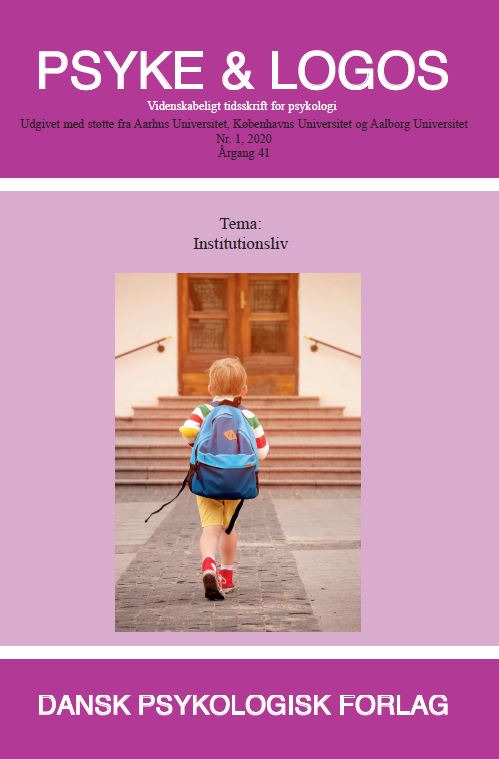Prison notes on emotions-as-data
DOI:
https://doi.org/10.7146/pl.v41i1.121509Keywords:
resocialisation, ethnography, emotions, discourse, retraumatisationAbstract
My research applies a theoretical framework outlining emotions as sociocultural constructs that are expressed through social discourses and practices. From this perspective, I investigate emotions-as-data in relation to the resocialisation of an inmate, Sverre, who is serving the last part of his custodial sentence for homicide. The empirical material is collected in an open prison in the Southern part of Norway and consists of interviews and participant observation. In the article, Sverre’s narrative accounts for his turbulent life story where he moves from a suicidal condition, impacted by drug addiction and mental vulnerability, to a stabilised situation in which his belief in the future is supported by a strong personality and vocational qualifications. Furthermore, the ethnographic research highlights how I, as a researcher, am affected by the social activities of fieldwork. It involves theoretical and methodological reflections on the researcher’s positionality, including questions concerning the representation of “the other” and the effects of an emerging mental distress triggered by my immersion in the field. The analysis contains examples of dialogical collaboration and self-analysis, altogether conceptualising the emotional variables as a source of knowledge similar to other sources of primary data. From this angle, the rich body of emotional discourses and practices is ascribed specific value. Besides drawing attention to the incomplete and partial nature of knowledge production, it helps us think about the complex and subjective emotional outcomes of a research encounter. According to this interpretation, emotions are the very stuff of social relations that shapes people’s understanding of what matters and makes sense in the communities we study.
Downloads
Published
How to Cite
Issue
Section
License
Ophavsret er tidsskriftets og forfatternes. Det er gældende praksis, at artikler publiceret i Psyke & Logos, som efterfølgende oversættes til andet sprog, af forfatteren frit kan publiceres i internationale tidsskrifter, dog således at det ved reference fremgår, at den oversatte artikel har et forlæg i en dansksproget version i Psyke & Logos. Artikler kan frit deles og linkes til på forsknings- og undervisningsnetværk (så som Blackboard). Link foretrækkes, fordi det giver oplysning om brug af tidsskriftets artikler.




